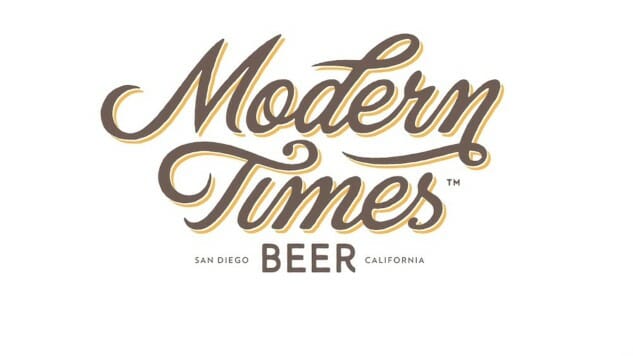Modern Times Beer Is Becoming Employee Owned

In a time when seemingly every other week brings news of another craft brewery buyout, we have something intriguingly fresh to report today. Modern Times, the popular San Diego brewery known both for their bold design aesthetic and well-balanced beer portfolio, has announced that it will bypass the traditional “buyout” by becoming employee owned. The Employee Stock Ownership Plan (ESOP) will begin with a 30% stake of the company, which has been repurchased from outside silent investors who had initially invested in the company when it opened in 2013.
“This is my single proudest achievement as Founder & CEO of Modern Times,” said founder/majority owner Jacob McKean in a press release announcing the new plan. “I’m supremely excited for our deserving employees, who have shown an almost perverse degree of dedication over the last 4 years. Now, they will benefit directly from the company’s success as co-owners. This is as it should be. Making Modern Times an employee-owned company gives me a sense of satisfaction that is somewhere beyond joy.”
With additional questions about the plan and the company’s decision to go in an employee-owned direction, we contacted McKean with additional question. As the sole founder and original CEO, he started the company by raising money from friends and family, who have now sold their shares back to begin the ESOP. The remaining 70% resides largely with McKean, who does not count as an “employee” as far as the ownership is concerned, and this portion will slowly be added to the ESOP over time.
“There will be subsequent rounds in which the company buys back the remaining shares held by investors, including mine,” McKean told Paste. “We will do that as soon as it is financially feasible. When an employee leaves, the company buys back their shares and it is returned to the employee pool.”
This system obviously incentivizes employees to remain with Modern Times and add to their ownership stake, while simultaneously giving them the ability to eventually cash out without contributing to the company being “bought out” by an outside party. When asked about those incentives, McKean said it was simply “the right thing to do” in order to let employees “share in the company’s financial success.”
“Business ethics are vitally important to me and an intrinsic part of the culture at Modern Times,” he says. “Also, this job is only worth doing for me if we are innovating in every realm. We are intentionally building a new kind of company that can be deeply influential on other businesses, and this is part of that process.”

Clearly, McKean’s comments imply he’s looking at the bigger picture of the craft beer industry when trying to provide an example. It certainly stands in fairly stark contrast to the spat of recent buyouts by MillerCoors and AB-InBev, who caused quite a commotion (including here at Paste) when they acquired beloved sour ale producers Wicked Weed in May, reigniting a feeling of righteous indignation among beer geeks that at times in the last year or two has felt like it was beginning to wane or acquiesce to inevitability. Modern Times has never been shy about sharing a distinctly anti-ABI stance in particular—they were one of the first breweries to call out the company by name earlier this year when it was revealed that the craft beer industry (outside of the breweries now owned by ABI) would no longer have access to highly prized South African hops.
“For the mega brewers, money is an end unto itself,” says McKean. “Nothing else is more important to them: not beer quality, not business ethics, not their employees’ well being. These acquisitions are pushing their toxic values into our industry, which generally does not share them. That must be vigorously resisted, and I am fairly optimistic on our ability to do so. I hope other craft brewery owners will look at what we have done with employee ownership and see it as a vastly better way for them to achieve a return than selling to a mega brewer.”
This may be somewhat hyperbolic, when all is said and done—predatory business practices aside, we’re not sure that AB-InBev has the worst track record in terms of “their employees well being,” as McKean states. He’s correct, though, that transfers of ownership involving ESOPs represent an intriguing alternative to selling one’s company to a mega brewer, allowing the original owners to slowly cash out and leave their company in the hands of their own employees. It’s a concept that has been implemented by several other breweries as well—most notably by New Belgium, but also by the likes of Left Hand, Harpoon and Voodoo.
“Employee ownership is really just finding its footing in the U.S. in general,” says McKean. “It is more complicated than simply getting a check and walking away, but acting with integrity and human values is more important than that small convenience. And there are financial and operational benefits as well. We hope to educate more breweries about how and why they should go the employee ownership route, and I think we will succeed. Craft breweries tend to be owned by people who want to do the right thing, so once this process is demystified for them, I believe you’ll see more embrace it.”
It will be interesting to see if McKean is right. In the meantime, we hope to see some Modern Times beers making their way into Paste’s monthly series of blind style tastings. DIPA is coming up in September … just sayin’.
The logo of the new ESOP is below.

Jim Vorel is a Paste staff writer and resident beer guru. You can follow him on Twitter for much more beer coverage.







































